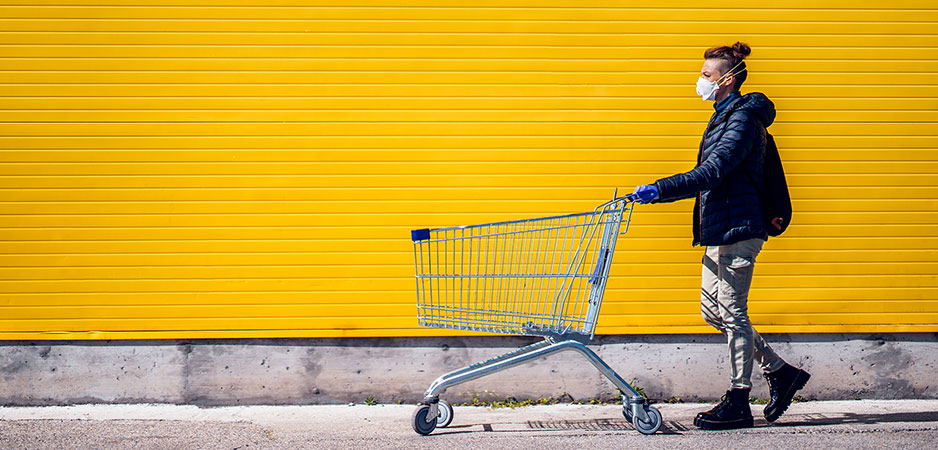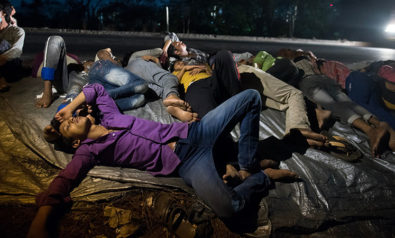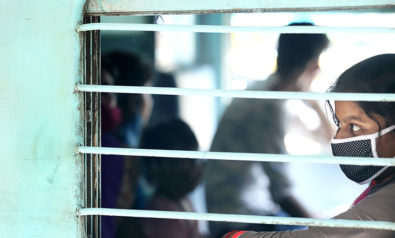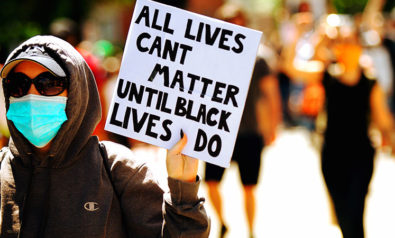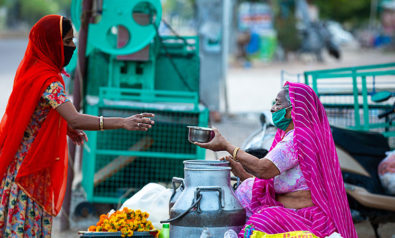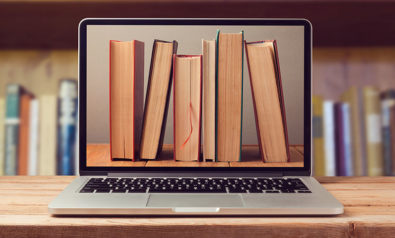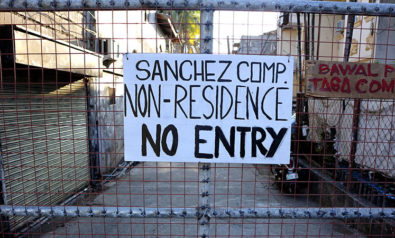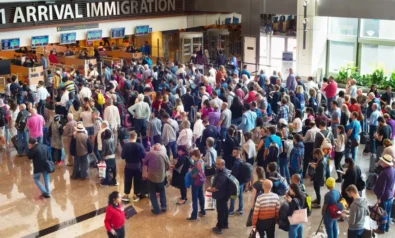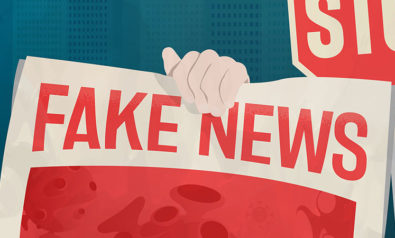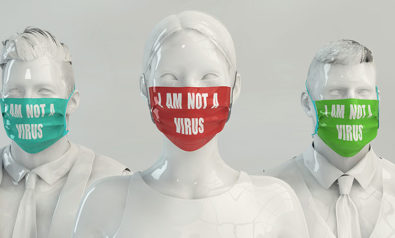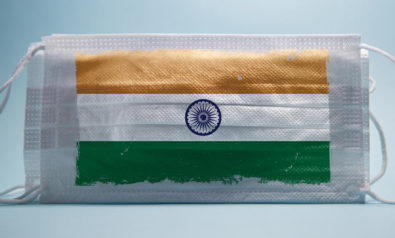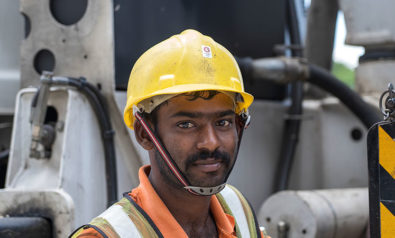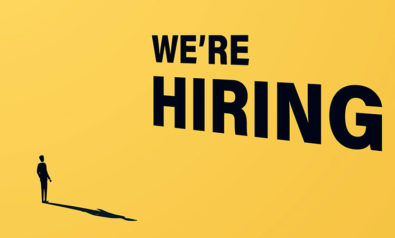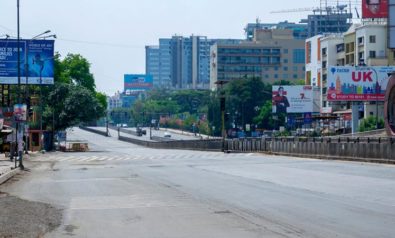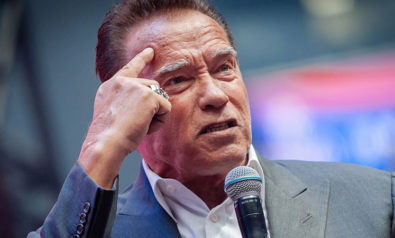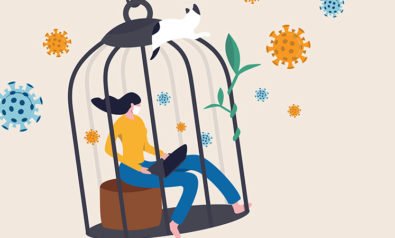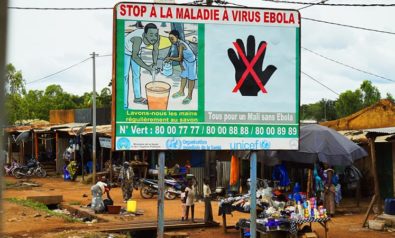Editor’s Note: These are unprecedented times. A global pandemic has changed life as we know it. In recent months, Fair Observer has examined the crisis through political, economic and social lenses, publishing articles from around the world. The result is three 360° series that we urge you to read. You too can get involved in the conversation by sending us your perspective.
Like past pandemics, COVID-19 will leave an indelible mark on society. A little over a hundred years ago, the 1918-19 influenza killed anywhere between 50 million and 100 million people. This put public hygiene, health, nutrition, housing and even inequality in stark focus.
The idea of socialized medicine, free for all at the point of delivery, took off. The newly formed Soviet Union was the first to create a centralized public health-care system. Germany, France and the UK eventually followed suit. Not only countries but cities, towns and villages focused on public health and long-neglected social issues. In the remote city of Östersund in then-poor Sweden, “people of all political convictions and stations in life” overcame class and political divisions to forge a new social solidarity.
Scroll down to read more in this 360° series
Click here to read our full coverage on the coronavirus pandemic
Many other major changes ensued. Nursing rose in prominence in society. Most nurses were women who cared for their communities and earned great respect. This set the stage for a greater role and increased remuneration in the future. In 1920, women won the right to vote in the US and the UK. A hundred years on, COVID-19 promises to unleash several tectonic changes in our daily lives, society and culture.
The Psychological, Social and Cultural Impacts of COVID-19
Never before have so many people been immobilized at once the world over. About half the world’s population is cooped up to prevent the spread of the pandemic on an overcrowded planet of over 7.5 billion people. This forced isolation is leading to challenges that are much more than just economic.
Numerous papers have been published analyzing the impact of loneliness as a result of social isolation. The World Health Organization (WHO) has found that “the main psychological impact [of COVID-19] to date is elevated rates of stress or anxiety.” Quarantine affects people’s usual activities, routines or livelihoods, causing various mental health issues.
As per The Lancet, the effects of long-term social isolation on stress levels of non-human animals include “increased neuroendocrine responses and stress reactivity.” This could lead to increased cravings for food, alcohol and drugs. While some are eating more healthily, many are turning to carbohydrates and sugars as a relief from stress and boredom.
Australian researchers have made a surprising finding: 10.8% of men reported increased alcohol use in contrast to 18% of women. Women are drinking more during the COVID-19 pandemic because international data reveals they are “more likely to experience symptoms of stress, anxiety and depression.” Women are “almost three times more likely than men to be looking after children full-time on their own” during this pandemic. Women also make up the majority of the casual workforce. During these times, they are more likely to be disproportionately affected by the changes to our daily lives, and gender inequality seems to be on the rise. As if home and work pressures were not enough, domestic violence is on the increase around the world.
In the US, the cannabis industry has made a great leap forward thanks to COVID-19 as some states declared it to be an “essential good.” Similarly, the consumption of pornography has boomed. In India, where alcohol, cannabis and even food have been hard to get, traffic on porn sites shot up by 95% during a draconian lockdown. In the US, gun sales saw their highest-ever spike, with about 2 million sold in March alone.
The pandemic has led to grandchildren staying away from grandparents out of fear that they could transmit a potentially fatal infection to their loved ones. Many have died alone, with often just a video call with the family available at the deathbed. Those with disabilities have found support has been hard to come by. Inequality is increasing around the world. The poor and the vulnerable have few assets or savings to fall back on when they lose their jobs. Consequently, an even more egalitarian Europe is becoming less equal while the World Bank projects that “COVID-19 is likely to cause the first increase in global poverty since 1998.”
Schools and colleges have closed, with teaching shifting online. Most teachers are struggling and so are students, especially the young ones. With restaurants, bars, clubs, gyms, offices and entertainment establishments closed, more people are finding love on dating apps, with Tinder reporting its highest number of swipes ever on March 29. Those who can are working from home. Churches, temples and mosques have been empty. This year, Muslims observed Ramadan and marked Eid al-Fitr without communal celebrations.
Where governments have often failed, many communities have risen to the occasion. Doctors, nurses and other front-line workers like shopkeepers and bus drivers have been nothing short of heroic, risking their lives on what is often unacceptably low pay and even less adequate personal protective equipment. Volunteers have brought food and medicines for those in isolation. As during all times with dark clouds, rays of hope have kept people, communities and societies going.
Why Do the Impacts of COVID-19 Matter?
Every few decades, an event changes society dramatically. COVID-19 is such an event. It is setting in motion long-term changes that are hard to see in the heat of the moment.
A key fact everyone is talking about from Boston to Beijing is the sudden improvement in the environment. With fewer cars on the road, hardly any planes in the sky and many factories closed, the air is cleaner, the rivers clearer and birdsong louder. The environmental impact of curtailing human activity is now center stage. There is skepticism that, just like emissions fell after the 2008 crisis, they will bounce back again, perhaps even with renewed vigor.
But there is also hope that, having seen what massive changes can be achieved, people are going to care more about the environment and invest more in fighting climate change. With energy demand collapsing by nearly 30%, the COVID-19 lockdown is speeding India’s shift from coal to solar power. In the US, oil companies have been collapsing while wind and solar ones have proved more resilient.
Similarly, health-care systems will experience major changes. For the last two decades, massive privatization of health-care occurred in many parts of the world. In some developing countries like Nigeria and India, public hospitals virtually collapsed over the last two decades. That privatized model will come into question. Profit-maximizing has not worked in health-care even in the US. In developing countries, a move toward a more European system that focuses on public health might be in the offing.
In some countries, the social fabric is under strain. In India, tensions between Hindus and Muslims have increased because the latter have been blamed for spreading the coronavirus. The police killing of George Floyd, a 46-year-old black man, in the US city of Minneapolis has led to widespread anti-racism protests around the world. Systemic racism and police brutality have become part of public discourse, as has the violence against journalists that has also been on the rise.
However, as the Financial Times notes, COVID-19 has “injected a sense of togetherness into polarised societies.” It has thrown hitherto eccentric ideas such as universal basic income and wealth taxes into the policy mix. Spain has launched a national minimum income policy that will benefit an estimated 2.3 million people and cost about €3 billion ($3.4 billion) a year. About 850,000 lowest-income households will get around $500 per month. In Europe, the welfare state emerged from the ashes of World War II. As millions around the world lose their jobs, this is the time to reimagine the current social welfare systems as well as reconsider what we place value on in our societies.
The views expressed in this article are the author’s own and do not necessarily reflect Fair Observer’s editorial policy.
For more than 10 years, Fair Observer has been free, fair and independent. No billionaire owns us, no advertisers control us. We are a reader-supported nonprofit. Unlike many other publications, we keep our content free for readers regardless of where they live or whether they can afford to pay. We have no paywalls and no ads.
In the post-truth era of fake news, echo chambers and filter bubbles, we publish a plurality of perspectives from around the world. Anyone can publish with us, but everyone goes through a rigorous editorial process. So, you get fact-checked, well-reasoned content instead of noise.
We publish 2,500+ voices from 90+ countries. We also conduct education and training programs on subjects ranging from digital media and journalism to writing and critical thinking. This doesn’t come cheap. Servers, editors, trainers and web developers cost money.
Please consider supporting us on a regular basis as a recurring donor or a sustaining member.
Support Fair Observer
We rely on your support for our independence, diversity and quality.
Will you support FO’s journalism?
We rely on your support for our independence, diversity and quality.

